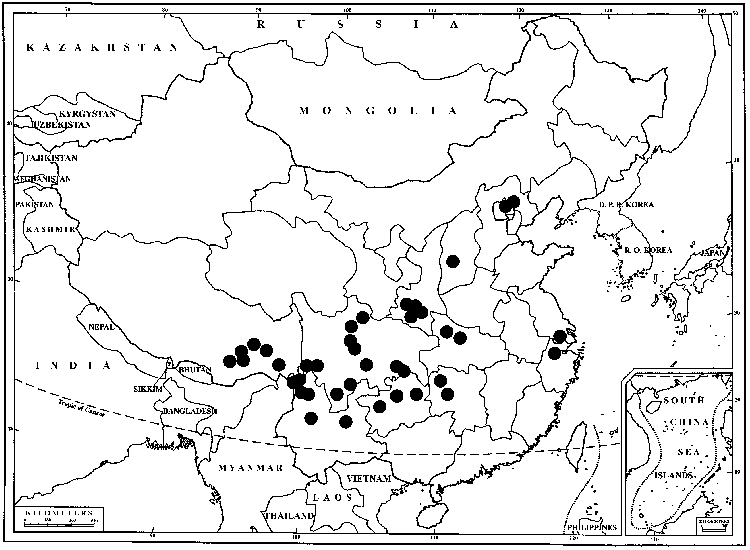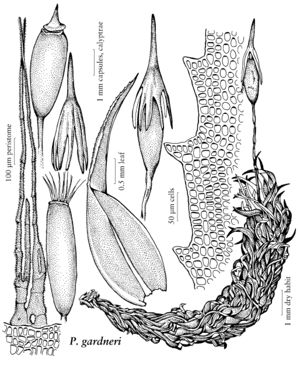Difference between revisions of "Ptychomitrium gardneri"
Mem. Calif. Acad. Sci. 1: 16. 1868,.
FNA>Volume Importer |
FNA>Volume Importer |
||
| Line 31: | Line 31: | ||
-->{{#Taxon: | -->{{#Taxon: | ||
name=Ptychomitrium gardneri | name=Ptychomitrium gardneri | ||
| − | |||
|authority=Lesquereux | |authority=Lesquereux | ||
|rank=species | |rank=species | ||
| Line 46: | Line 45: | ||
|publication year= | |publication year= | ||
|special status= | |special status= | ||
| − | |source xml=https://jpend@bitbucket.org/aafc-mbb/fna-data-curation.git/src/ | + | |source xml=https://jpend@bitbucket.org/aafc-mbb/fna-data-curation.git/src/f50eec43f223ca0e34566be0b046453a0960e173/coarse_grained_fna_xml/V27/V27_420.xml |
|genus=Ptychomitrium | |genus=Ptychomitrium | ||
|species=Ptychomitrium gardneri | |species=Ptychomitrium gardneri | ||
Revision as of 21:01, 16 December 2019
Plants robust, tufted, glossy, green to dark green. Stems erect or repent, to 5 cm. Leaves crispate-contorted when dry, narrowly acuminate, 4–6 mm; margins coarsely serrate distally, recurved on one or both sides proximally; apex plane or with erect margins but not cucullate. Specialized asexual reproduction absent. Seta 1–2(–3) per perichaetium, 4–10 mm. Capsule cylindric, 2.5 mm, smooth to weakly striate-ribbed when dry; peristome teeth divided into filiform segments, densely papillose. Calyptra lobes 1/2 or more length of calyptra.
Phenology: Capsules mature Mar–Sep.
Habitat: Limestone, basalt, and other rocks, and concrete, rarely soil, logs, and charred wood, open sites, especially along rivers
Elevation: low to moderate elevations (0-1400 m)
Distribution

B.C., Calif., Idaho, Mont., Oreg., Wash., Asia.
Discussion
Ptychomitrium gardneri are robust glossy plants easy to recognize by their green to dark green color, serrate, acuminate leaves, and narrow lobes of the deeply divided calyptra. The lobes of dry mature calyptrae often spread outward like the spokes of a wheel. The leaves are much longer and more narrowly acuminate than those of the somewhat similar P. serratum; the ranges of the latter and of P. gardneri do not overlap.
Selected References
None.
